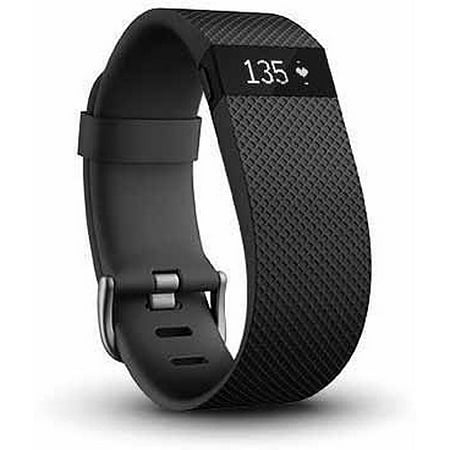Having written a lot about data this week I am now going to create lots more data as I have received a Fitbit as a pressie. I am amazed at the amount of data that this little gadget collects - not just steps taken. I have had the Fitbit App on my phone for a few months now and find myself regularly looking at my activity (or non-activity!).
 |
| Image source: Walmart. |
In reality, we don't need a gadget like this to tell us how active or fit we are - we all know this already. However, I find that in highlighting inactivity, that it does motivate to do a bit more - if I get near the recommended 10,000 steps a day, I feel challenged to try to get there. My Fitbit will now track not just my number of steps, but also my pulse, sleep patterns, calories burned, distance travelled - plus a lot more. If I wear this for the rest of my life, imagine the amount of data that it will gather? It will take a bit of getting used to. I now have my watch on one wrist, and the Fitbit on the other - I can already see the attraction of a Smartwatch that could do both (but I love my Nixon watch!).
Data gleaned from Fitbits and such gadgets like this will inform the medical sciences about people's health in more ways than before. Writing in The Irish Times last week, Ciara O'Brien asks Does wearable technology deserve clean bill of health? She tells us about a new six-year study in America where 3,200 overweight and obese women have been given the same Fitbit as mine to wear. The aim of the study is to see if losing weight can help prevent early stage breast cancer from returning. No study will have had as much data like this before.
For data scientists, this is an exciting new period for data analysis - what can we see that has not been seen before. Will it be possible to find a cure for cancer by examing data instead of developing new drug treatments? If I develop heart disease in 10 years time, will my 10 years worth of heart data be of use in treating me, or in helping to develop treatments for others? While traditional treatments and research will, and must continue - we will back it up with a lot more data than ever.
If there are research studies out there looking for a 57-year-old male with a Fitbit to take part in a study - I'm up for it. As I wrote yesterday, new GDPR regulations due in 2018, are targeted at personal data like genetic and biometric data. Fitbit the company is now collecting data on me, presumably they commit to not sharing it (I didn't read the Terms and Conditions - does anybody?). However, with my consent, I should be able to share it with my GP or a doctor treating me. The day is not far away when biometric data will become part of our patient history files. There are of course lots of data privacy and protection challenges - but data scientists should be ready for a whole new era of opportunity with data.
No comments:
Post a Comment